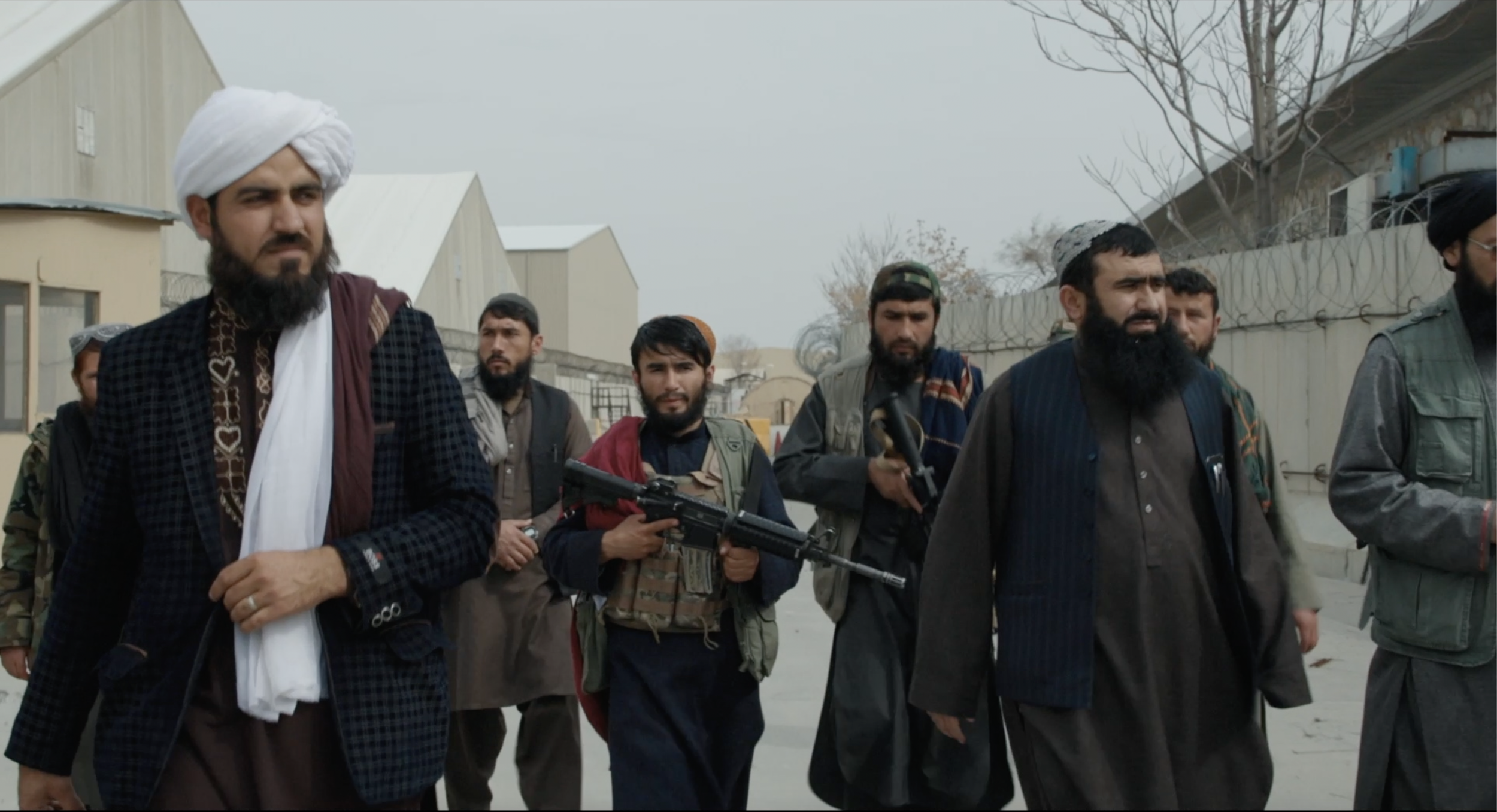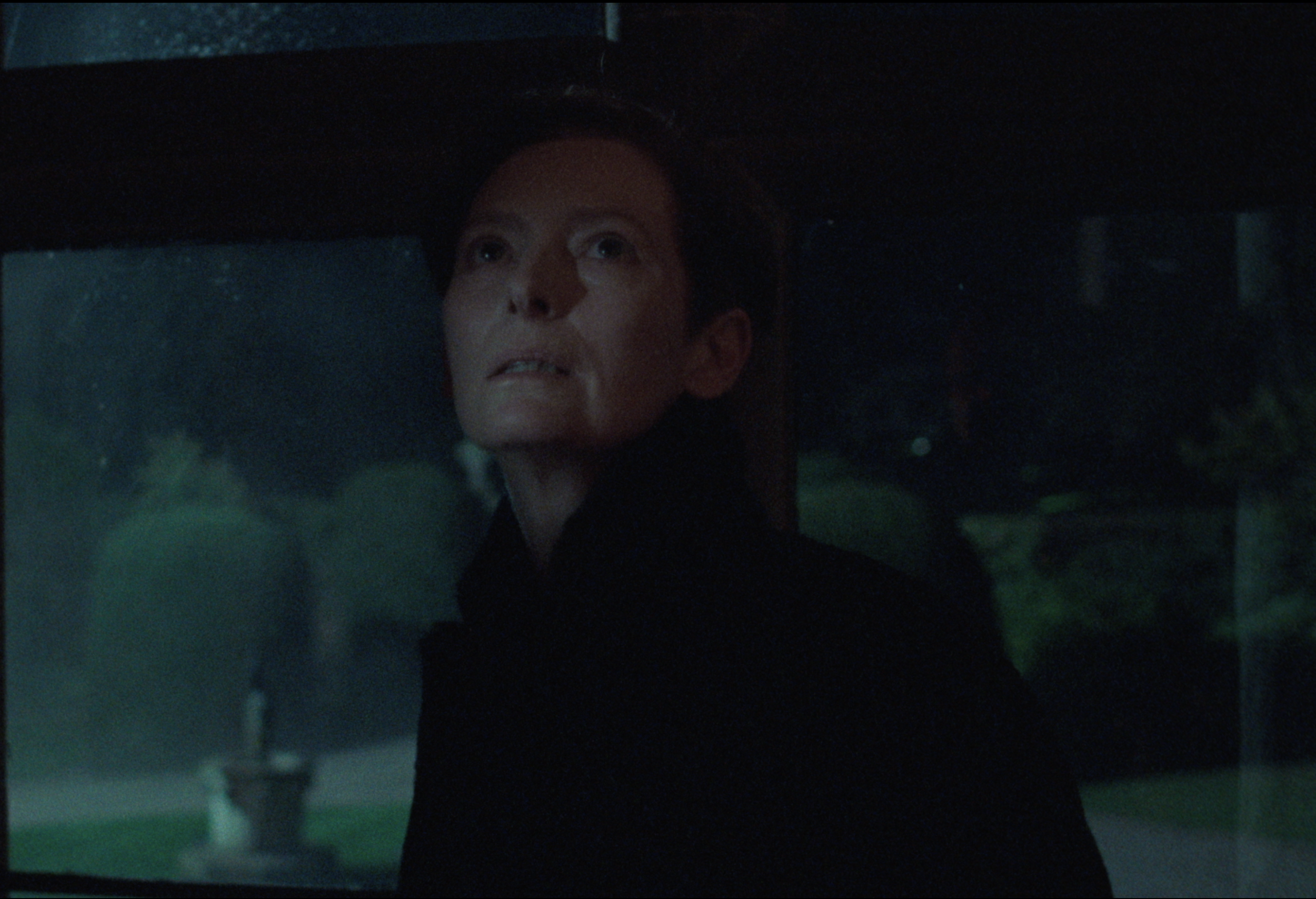Nobi - Fires On the Plain Directed by Shinya Tsukamoto
Nobi - Fires On the Plain
Directed by Shinya Tsukamoto
Starrings: Shinya Tsukamoto, Lily Franky, Tatsuya Nakamura, Yûsaku Mori, Yûko Nakamura, Dean Newcombe, Hiroshi Suzuki, Masato Tsujioka, Hiroshi Yamamoto
Country: Japan
Year: 2014
Author Review: Roberto Matteucci
Click Here for Italian Version
“Kill yourself!”
Director Shinya Tsukamoto creates impetuous films. His fame began with Tetsuo. The transposition into images of one of the traumas in the human body: joining, as a unique part of a machine, with pieces of a robot. It is a disturbing incubus created by our obsessed minds.
Thought widespread in modern Japanese culture. Like Yukio Mishima and his journey on an F 104 described in Sun and Steel (Taiyō to tetsu, Guanda Editore, Parma, 2nd edition, July 2004) or as in a multiplicity of manga.
Shinya Tsukamoto uses the same language for a shocking story, which distorts our beliefs. At the 71 Venice Film Festival, he presented Nobi - Fires On the Plain.
Shinya Tsukamoto in an interview depicted a real nightmare. Something actually happened, and incredibly, no one can exclude its repetition in the future:
“I think Nobi is a total nightmare movie, so it's definitely the dream that takes over here. The nightmare to which I refer, however, paradoxically, is also something that really happened, that is, the Second World War. Considering that for long periods, in Japan we stopped remembering the tragedy of war, I wanted to show it on the big screen, in all its drama, in its character of a waking nightmare. The explicit violence in many scenes is precisely intended to make viewers hate war.” (1)
The monstrous vision of war means for the Japanese the nefarious Second World War. In 1942, Japan conquered the Philippines from the Americans. In 1945, they would be kicked out. Due to the geography of the Philippines, many Japanese remained isolated and stuck in the jungle. The order was to join the last military resistance in Cebu. The retreat was a massacre. The Japanese were already undernourished, without rations for a long time.
This episode is filmed by Shinya Tsukamoto in his style, in his language, in his apocalyptic, over-the-top interpretation. Exaggeratedly, it captures any nuances. Indeed, the director shocks the audience by going into detail, dragging them into the putrid sores together with the flies or worms, achieving the success of provoking inhuman reactions.
Japan's collapse is imminent. In a small contingent inside the forest, a soldier is sick. He suffers from lung pain. He is filthy, tired, disfigured, malnourished; he is disgusting. He is even rejected by his officer, who drives him away. They have no food, so he gives him a couple of rotten potatoes, the only nutrition available.
Hallucinated, depleted, and unable to react, to rebel. He went to the hospital. It is a jungle hut. A pitifully place since it is the symbol of horror and human exhaustion. It induces nausea, repulsion, and repugnance. The hospital is buried in dirty red blood. Wounded soldiers are treated without medicine, without hygiene and without anaesthesia. The doctor undergoes with his bare hands, inserting them into the cuts. Blood splatters on the entire screen. A clash breaks out among the patients for food. They are hungry. They have become ghosts. The sense of survival pushes them to carry out infamous gestures.
The director narrates it with a camera as crazy as human intelligence. It moves in zigzags, throws itself into people, shows atrocious particulars.
There is the miserable attempt of many wretched soldiers, alone immersed in the dominant vegetation, to reach Cebu, the last line of defence organized by the Japanese. War is delirious and schizophrenic. It depresses the consciousness of existence, makes them fetid. Shinya Tsukamoto explained:
“However, in Western films we are used to representing war in a different way. On this subject, frankness is not only in the West but also in Japan. War films are treated either in a heroic way, with the exaltation of certain figures, or as tear-jerking melodramas. I find it absurd because war should always be represented in its crudeness and horror." (2)
On the contrary, Shinya Tsukamoto drew the war in a heroic way.
In fact, the outcast Japanese soldiers on the run, without food and means, are a group of heroes. They fight beyond all human possibility to stay alive, even though, there is only death, desperation and madness around them.
In Nobi, music fills the sequences. The camera and the position of the shots have a life of their own; actors and settings act frantically and without control. There is not even mercy for those soldiers without dignity and human features.
The extreme effort to arrive in Cebu is a walk through hell. A sacred purification. The flesh of the soldiers is elevated in its spirituality:
“In my films, the human body becomes an object and so it is also on the battlefield. And just as people think my films are often excessive, the same is for war. This was a film I had to make, to talk once again about the human body and its survival." (3)
Indeed, it is the body of the debilitated soldiers that is the object of the author's attention in the conclusion. Cannibalism appears. The paths in the jungle are full of carcasses. In numerous cruel scenes, there are parts of men everywhere, and although they are dismembered, they still painfully try to live.
In reality, they are spectres, corpses. They look like zombies because they are powerless. They walk in pain and dejection. They lose their viscera, their guts, their intestines. Legs and arms are cleanly amputated and abandoned while what remains of the body continues to combat.
Not even parasites and insects prevent the desire to be saved. Despite the close death, the soreness, the malnutrition, there is even something more threatening that scares them. Among the wretched, there is a rumour, an abomination. It is not death. There is something worse.
Among the few survivors, a voice is whispered with anguish: many of them feed on human flesh, on the carcasses of their comrades in arms, to stay alive.
Cannibalism is the unifying element of the ending. Anthropophagy is a metaphor for the situation in Japan at the end of the Second World War. It is almost time for the launch of the two atomic bombs and the first foreign invasion of the archipelago. There is much destruction and the wounds are not exclusively physical but above all, moral. Defeat is near, and the population is convinced, with the arrival of the Americans, that they will be killed and despised in physical and tradition.
The number of suicides was enormous after General Douglas MacArthur landed.
They are terrified of the disappearance of a thousand-year-old world.
Shinya Tsukamoto is ferocious towards the viewer. War is brutal, it is ruthless, but the authoritative Japanese artist remembers it with elegance. Everything is realized with clear and precise ideas. Nothing is left to chance thanks to the continually distressing realization of life. It is a bath of sadness and evil.
(1) http://carnagenews.com/venezia-71-intervista-esclusiva-shinya-tsukamoto/ Translated by author
(2) http://farefilm.it/persone/intervista-shinya-tsukamoto-nel-mio-film-c-il-vero-orrore-della-guerra-1315 Translated by author
(3) www.everyeye.it/cinema/articoli/nobi-shinya-tsukamoto_intervista_23532 Translated by author




































A metaphorical comparison between Akira Kurosawa’s Ikiru and its remake Living by Oliver Hermanus, presented at the 79th Venice Film Festival.